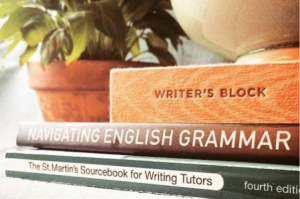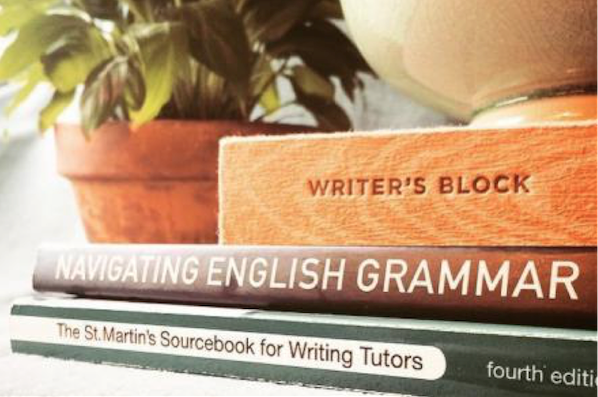by Veronica Nawojczyk
A blank white page can quickly transform into a vast, intimidating emptiness, deterring me (and probably you) from writing. When ideas aren’t coming readily to my mind, that blank, white page can just taunt me. I have had to learn how to karate chop that writer’s block clean in half. Here’s my advice for how you can too:
Freewrite
Just start writing. Try starting with the body paragraphs and coming back to the introduction later. Prose writer and App State student Alaina Doyle suggests a freewriting technique she learned from her Creative Writing professor: “I’ll give myself a word or phrase to start with, and then I write everything that comes to mind non-stop for 15 minutes.” Starting off with some writing on the page is comforting in itself and will ebb away the fear of that blank page.
Write Terribly
Don’t be afraid to write terribly. Forgive yourself for poorly worded sentences and jumbled thoughts. The first step to writing success is merely putting something on the paper no matter the quality. Writing Consultant Morgan confesses that when she experiences writer’s block she “write[s] anyway – even if it’s bullsh*t.” After all, you can edit a crummy passage and make it beautiful, but you can’t edit a blank page.
Organize Yosef
Sometimes clutter in your environment can feel like clutter in your brain. Take some time to organize yourself and your surrounding. Once you have a clean environment, you might find that you’ve made room for your creative thoughts.
Routine
Set a regular time to write each day. Mark out writing times in your agenda (another form of organizing yourself), and make sure that during this time, there will be limited distractions. If it’s a larger project and you have more time, try breaking up your writing into manageable chunks. Even sitting down to write for just 10-15 minutes a day will help your mind and body get into the habit of writing. When you set aside a short block of time to write, chances are that you may end up writing better and for longer than you expected.
Change of Scenery
If sitting down to write is still not working for you and you feel stuck, try a change of scenery to get your creative juices flowing. Writing Consultant Cindy advises that when you’re completely stuck on your writing, “set it aside and change location and change focus to something mundane like showering or driving. Think about your topic with no pressure to write.” Try going for a walk or doing a quick yoga session. The main point is to get the blood flowing and the mind in a flexible state.
Be Prepared
When you’re out and about trying to incite some new ideas, be prepared in case inspiration strikes. Alaina Doyle shares a trick that she uses to remember her ideas when she’s away from her writing: “I keep a journal of passing thoughts I have throughout the day or as I’m falling asleep, [then] I look in my journal when I’m feeling stuck and need inspiration.”
Read a Book
If journaling and nature walks are not giving you enough to work with, try finding inspiration in the books and writers you love. Read quotes or passages that inspire you and consider what aspects of their writing you admire the most. Try to emulate that writer’s style until you get in your own flow.
Do Something You Love
If you’ve tried all of the tips above and you’re still drawing a blank, give yourself permission to take some time off from writing and just enjoy yourself. Listen to music. Grab lunch with a friend. Send a Valentine. When you come back to write, you might find that you feel refreshed and in a better mindset.

